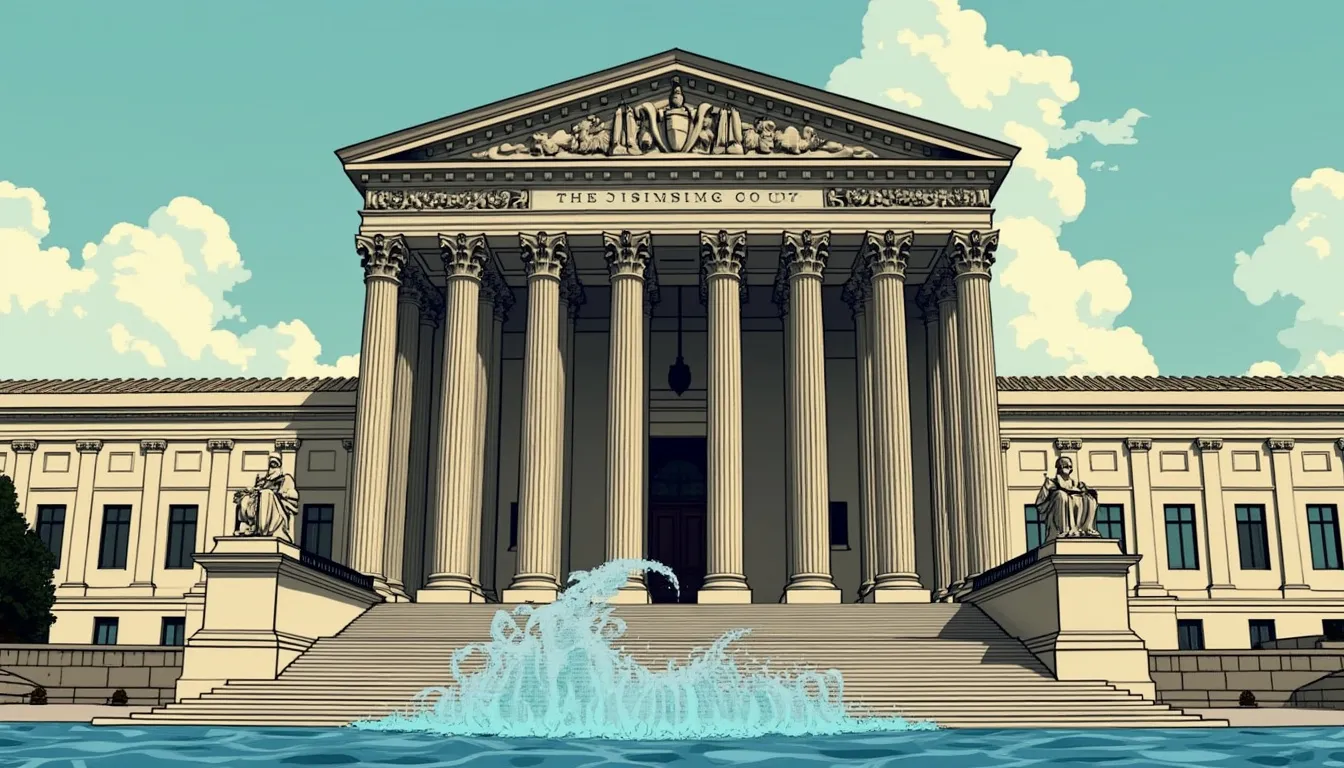
The Supreme Court Continues to Struggle with Significant Leakage Issues
The Supreme Court of the United States, an institution that upholds the rule of law and the integrity of the judicial system, continues to face a troubling vulnerability: significant leaks of sensitive information. As detailed in a recent article by the National Review, these leaks not only threaten the Court’s credibility but also pose serious risks to its operational effectiveness and institutional trust.
Continued Vulnerability to Leaks
The Supreme Court remains persistently vulnerable to internal leaks. This compromises the confidentiality necessary for the Court’s deliberations and opinions. Insiders may exploit these leaks to sway public sentiment or influence the political narrative, undermining the Court’s status as an impartial arbiter of justice. The accessibility of sensitive material can lead to a dangerous precedent where judgments and discussions are subjected to public scrutiny before any official statements are made.
Impact on Institutional Trust
Leaks within the Supreme Court can erode public trust in the institution. When information intended for private consideration becomes public, it raises questions about the Court’s ability to protect its confidentiality. This perception, whether justified or not, can ultimately undermine the authority of the Court and lead to disillusionment among the American public regarding its impartiality and effectiveness.
Use of Leaks for Political Purposes
Perhaps more troubling is the suggestion that some leaks are deliberately deployed as political weapons. These leaks may serve to advance specific agendas by exerting pressure on justices or swaying public opinion in a desired direction. Such tactics not only distort the Court’s image but also threaten the independence of its decision-making process. When insiders choose to act out of loyalty to a particular ideology rather than upholding confidentiality, it raises alarms about the institution’s long-term viability.
Lack of Effective Measures
Despite ongoing discussions and previous high-profile incidents of leaks, the Supreme Court has yet to implement robust measures to combat this issue. Current internal protocols appear insufficient to deter potential leakers or to safeguard sensitive information. There is a growing consensus on the need for comprehensive reform in the form of stricter internal controls and policies designed to prevent the dissemination of confidential material. Without these measures, the risk of future leaks remains high.
Potential for Misuse
The absence of accountability for unauthorized information disclosure presents significant risks to the Supreme Court’s impartiality. As the article implies, when leaks are easily executed and rarely punished, the integrity of the decision-making process is jeopardized. This lack of oversight can create an environment in which staggered leaks become commonplace, further entrenching the public’s skepticism and potentially manipulating judicial outcomes.
Conclusion
The ongoing leak problem facing the Supreme Court is a serious challenge that demands immediate and effective solutions. As the institution grapples with maintaining confidentiality in an era where information is highly susceptible to exposure, the necessity for stronger protections and accountability measures becomes increasingly clear. Without these reforms, the credibility and functionality of the Supreme Court could remain at risk, casting doubts on its ability to serve as a cornerstone of democracy and justice.
